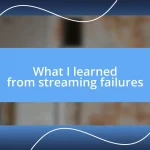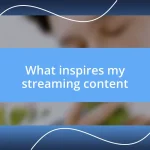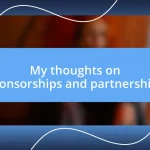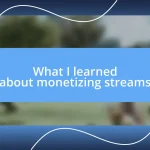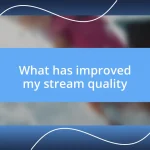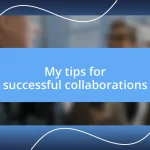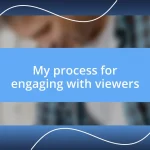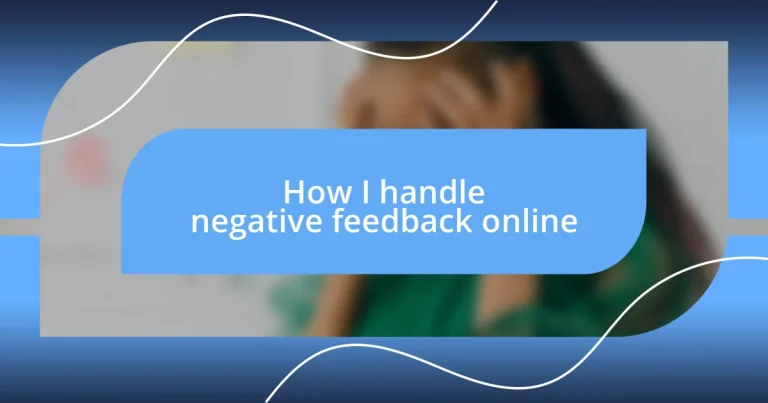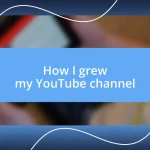Key takeaways:
- Negative feedback should be viewed as an opportunity for growth rather than a personal attack, allowing for personal development and resilience.
- Maintaining a positive online reputation is crucial, as it influences opportunities and trust, while proactive reputation management can improve mental well-being.
- Effective response strategies to feedback include staying calm, acknowledging the input, and keeping the conversation professional, fostering deeper connections and understanding.
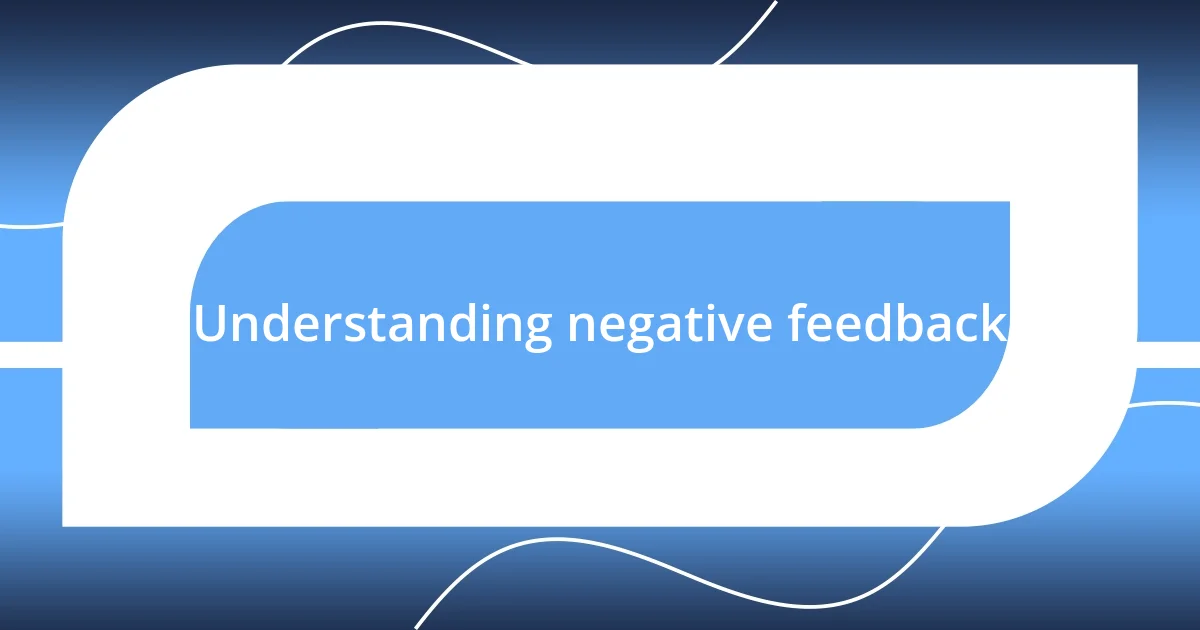
Understanding negative feedback
Negative feedback can often feel like a punch to the gut. I remember reading a harsh comment on a post I was particularly proud of. It stung because I felt exposed and vulnerable, questioning my abilities and choices. But I had to remind myself that this feedback, while uncomfortable, isn’t a personal attack—it’s simply an opportunity for growth and understanding.
When I encounter negative feedback online, I try to view it through a different lens. Is the feedback constructive, or is it merely negativity for its own sake? One time, I received criticism that seemed more about the commenter’s personal issues than about my work. This experience taught me that not all negative feedback is valid; recognizing the intent behind the words can help me separate the wheat from the chaff.
So, why do we often take negative comments to heart? I believe it’s rooted in our innate desire for acceptance and affirmation. I’ve learned to sit with this discomfort, using it to fuel personal development rather than letting it derail my confidence. It’s a constant balancing act, but understanding the nature of negative feedback has allowed me to stay grounded and focused on my journey.
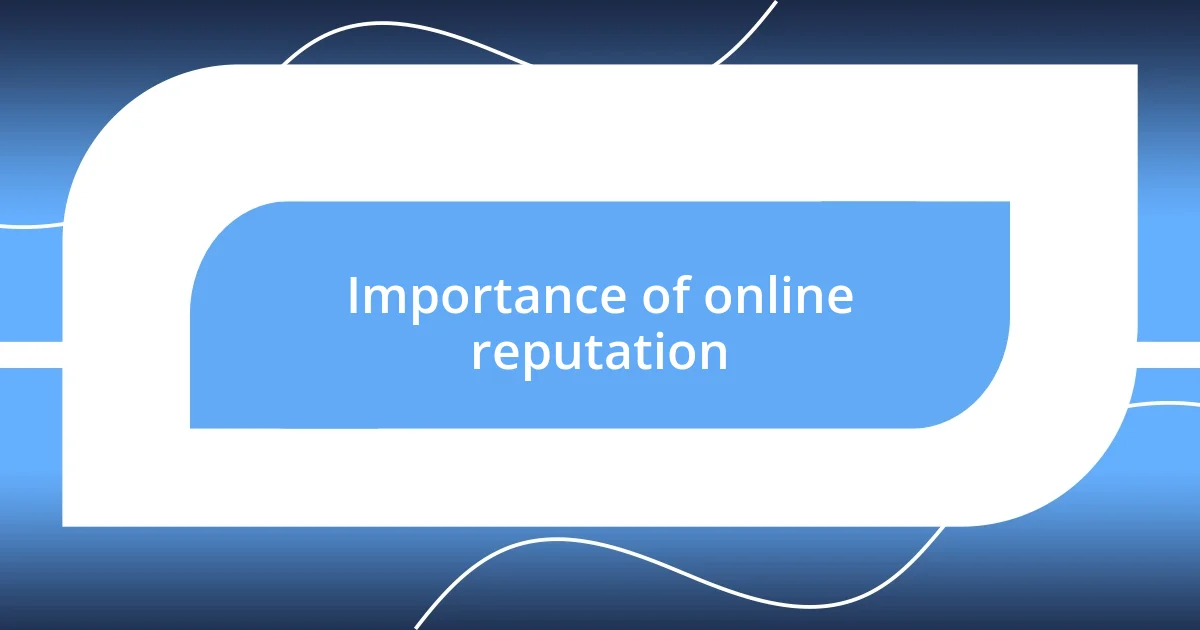
Importance of online reputation
Online reputation is an essential aspect of one’s presence in the digital world. It shapes how others perceive us, often impacting personal and professional opportunities. I’ve had moments where a single negative review impacted a project I was passionate about, highlighting how quickly people’s opinions can swing based on online feedback.
When I reflect on the importance of online reputation, it becomes clear that trust is key. I’ve seen how a strong, positive online image can open doors, while a tarnished reputation can close them just as swiftly. One time, after receiving an unjust criticism on social media, I reached out to my supporters, who rallied to share their positive experiences. This reinforced the idea that building a community can be crucial in maintaining a healthy online reputation.
Additionally, your online reputation can affect mental and emotional well-being. When I was struggling with negative online comments, I noticed my self-esteem took a hit. It taught me that proactive reputation management is not just about facing feedback, but also about nurturing an environment where positive dialogue thrives.
| Positive Online Reputation | Negative Online Reputation |
|---|---|
| Opens new opportunities | Limits personal and professional growth |
| Builds trust with audience | Creates skepticism and doubt |
| Encourages constructive engagement | Invites criticism and hostility |
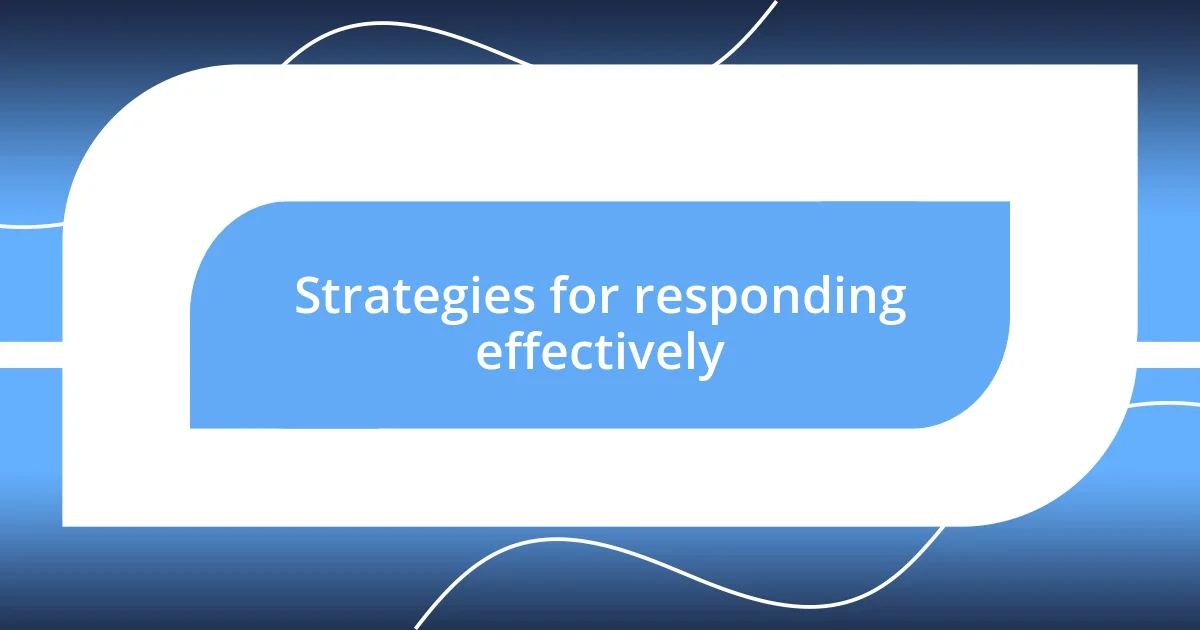
Strategies for responding effectively
When it comes to responding to negative feedback effectively, I’ve found that a calm and composed approach works best. Initially, I take a step back to process my emotions before crafting a response. I recall a time when a colleague posted a scathing remark about my presentation. Instead of reacting impulsively, I drafted a thoughtful reply that acknowledged their viewpoint while sharing my perspective. This not only helped diffuse the situation but also showcased my ability to handle criticism gracefully.
To respond effectively, I suggest keeping the following strategies in mind:
- Stay Calm: Take a moment to breathe and gather your thoughts before replying.
- Acknowledge the Feedback: Show appreciation for the input, even if you disagree. This can go a long way in softening the tone.
- Clarify Misunderstandings: If the feedback seems based on a misconception, gently clarify your intentions or context.
- Keep it Professional: Avoid personal attacks or emotional reactions. Maintain a professional demeanor.
- Take it Offline: If the conversation gets heated, consider moving it to direct messages or email for a more private discussion.
These strategies not only help in addressing the feedback constructively but also reflect my commitment to personal and professional growth. Ultimately, I’ve learned that engaging with this feedback, rather than ignoring it, paves the way for deeper connections and stronger understanding.
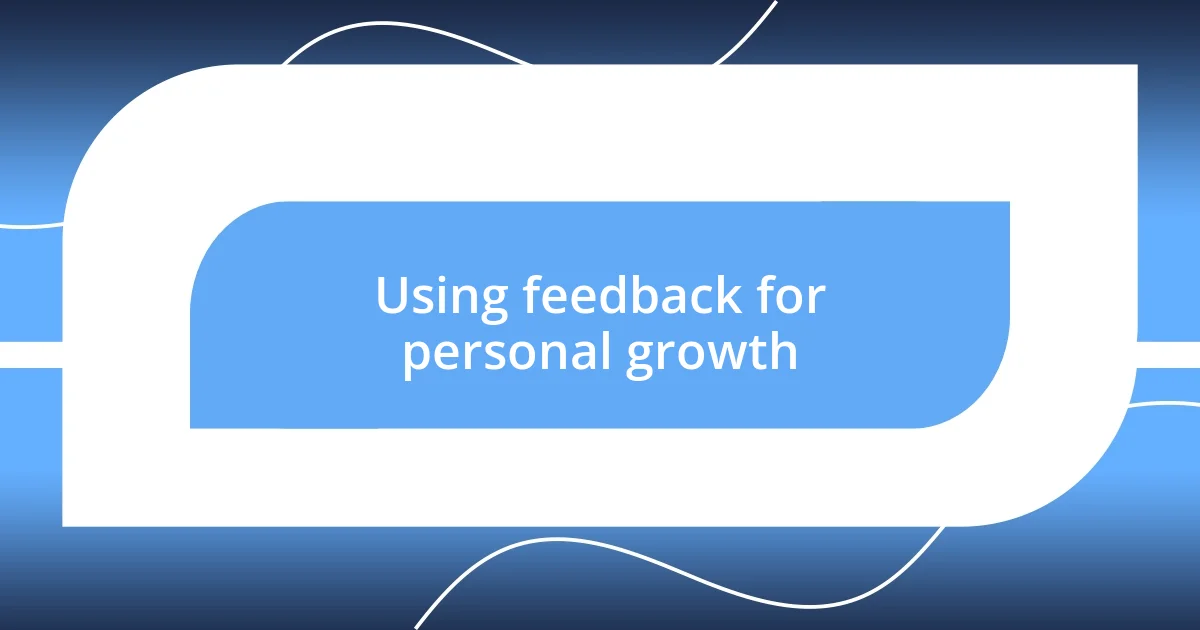
Using feedback for personal growth
Using feedback as a catalyst for personal growth has been a transformative experience for me. When I encounter criticism, I often find myself reflecting on the core of that feedback. For instance, after receiving constructive criticism about my writing style, I took the time to analyze it closely. This wasn’t just about the critique itself; it pushed me to experiment with new techniques and ultimately enhance my ability to communicate. Have you ever considered how a critique could be an unwrapped gift for your skills?
Each piece of feedback offers a chance for me to recalibrate my approach. I remember a time when a former colleague pointed out that my presentations were heavy on data but lacked storytelling. At first, I felt defensive, but reflecting on this insight made me realize that connecting emotionally with my audience could truly enhance my effectiveness. Now, I actively seek ways to weave narratives into my presentations, making them more relatable. Isn’t it fascinating how a simple observation can lead to substantial changes in our methods?
Embracing feedback, whether positive or negative, has allowed me to develop resilience. I’ve learned that reviewing feedback isn’t just a task; it’s an opportunity for introspection and refinement. For instance, during a recent project where I received mixed reviews, instead of dwelling on what went wrong, I focused on extracting lessons. It’s incredible how shifting perspective can turn potentially discouraging moments into stepping stones toward growth. What if we all viewed feedback not as judgment, but as guidance for our personal and professional journeys?
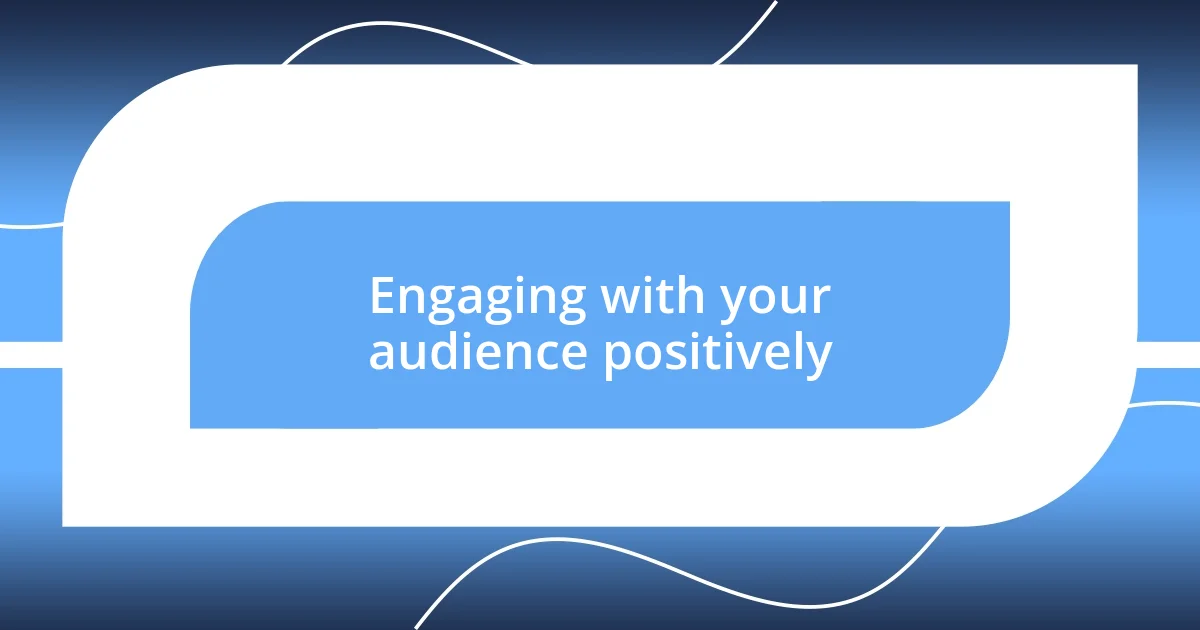
Engaging with your audience positively
Engaging positively with your audience starts with active listening. When someone shares their thoughts, I genuinely focus on what they’re saying, rather than just waiting for my turn to respond. I remember a time when a follower expressed frustration about a project of mine. Instead of brushing it off, I made a point to understand their perspective. This led to a meaningful dialogue that not only resolved their concerns but also deepened our connection.
In my experience, a positive engagement also hinges on showing appreciation. I’ve found that simply expressing gratitude for feedback can transform the conversation. I once thanked a commenter for their insights on one of my posts, and their initial negativity quickly turned into a productive discussion. It felt rewarding to turn what could have been confrontational into a collaboration. Do you see how acknowledging someone’s effort can change the narrative entirely?
I also believe in the power of humor and relatability. There was a moment when someone criticized my approach to a complicated topic. Rather than taking offense, I responded with a lighthearted comment about how even experts face challenges in simplifying complex ideas. This not only lightened the mood but also reminded everyone that we’re all on this learning journey together. It made me wonder: don’t we all appreciate a bit of humanity in our interactions? Embracing these elements helps foster an environment where open communication thrives.
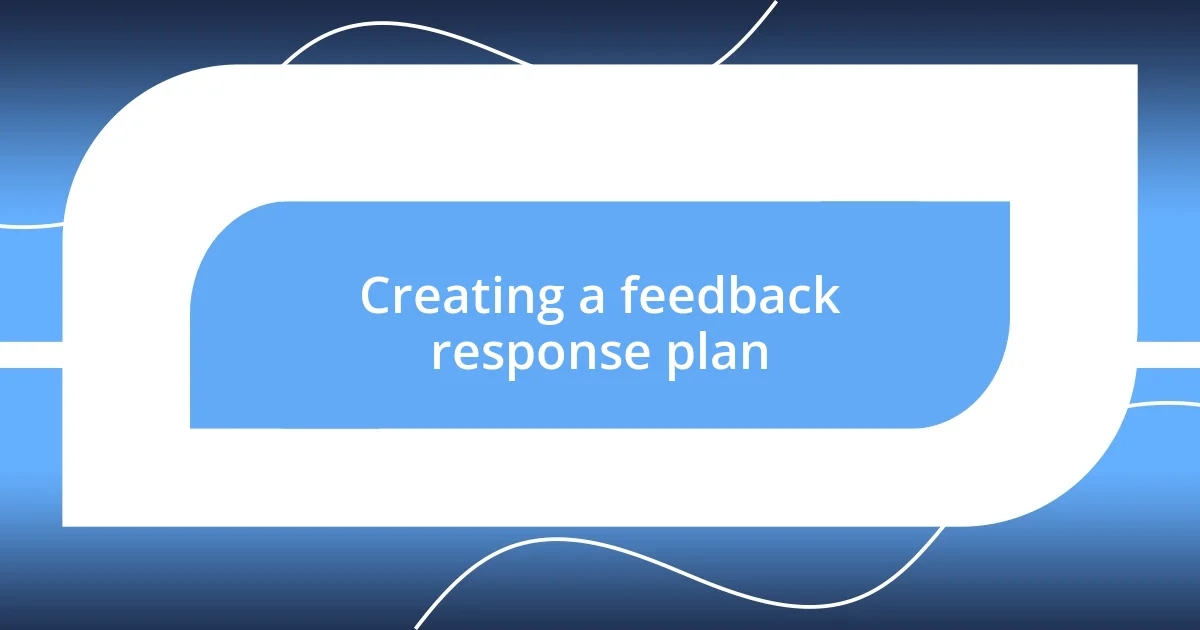
Creating a feedback response plan
Creating a feedback response plan is a strategic move I find vital in managing my online presence. I remember when I first developed my plan after a particularly harsh review on one of my projects. Instead of succumbing to frustration or embarrassment, I penned down a structured approach for responding without emotion overtaking my rationale. I established criteria like assessing the feedback’s validity, determining its actionable insights, and outlining how to address it without losing sight of my values. How do you decide what feedback to take to heart?
Part of my plan includes preparing a thoughtful template for responses. There was a time I received a scathing comment about my content’s depth. I crafted a reply that acknowledged their views while also inviting a conversation about their expectations. This turned a potentially negative interaction into an insightful discussion, and I found that this proactive approach diffuses tension while showing I value differing opinions. Doesn’t it feel empowering to navigate potentially complex interactions with a clear outline?
I firmly believe that revisiting my plan regularly is crucial for growth. For example, attending a workshop on effective online communication opened my eyes to the importance of adaptability. I started incorporating new strategies into my existing framework, which helped me feel more confident in engaging with feedback whether it’s constructive or downright critical. How often do you reassess your strategies to ensure they align with your evolving goals? With a dynamic plan, I’m not just reacting; I’m cultivating relationships and nurturing my growth as well.
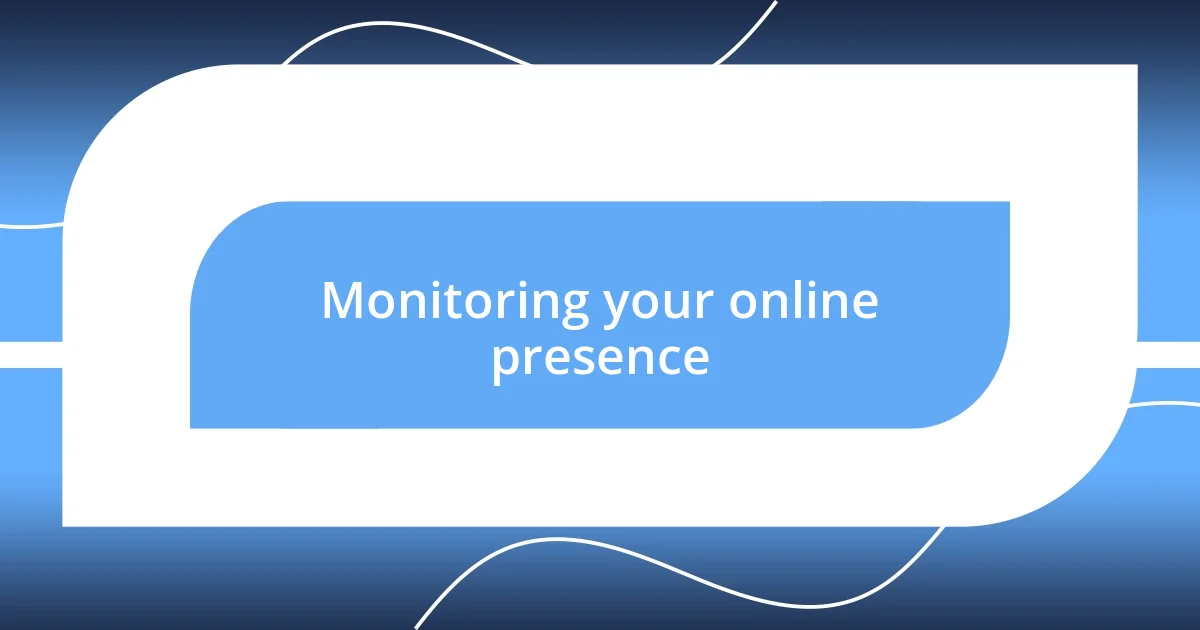
Monitoring your online presence
Monitoring your online presence has become a crucial part of my daily routine. I remember the first time I Googled myself—it was an eye-opener! I found comments, both positive and negative, scattered across various platforms. This pushed me to set up alerts for my name, helping me stay informed and engaged without feeling overwhelmed. Have you ever thought about what you might discover when you take a closer look at your digital footprint?
Another important aspect of monitoring is the use of analytics tools. I began utilizing these tools after noticing inconsistent audience engagement. By analyzing the data, I identified which posts resonated most and learned to align my content with my audience’s interests. It felt like uncovering a hidden treasure map! Don’t you think understanding your audience’s preferences can transform how you communicate with them?
I also try to engage with comments and messages regularly, as this fosters a sense of community. There was a time when I had a dialogue with a follower about a specific topic, and it turned into an enlightening exchange that prompted me to create related content. This spontaneous interaction reinforced my belief that monitoring isn’t just about tracking mentions; it’s about nurturing relationships. How often do you take the time to interact with the people following your journey?


